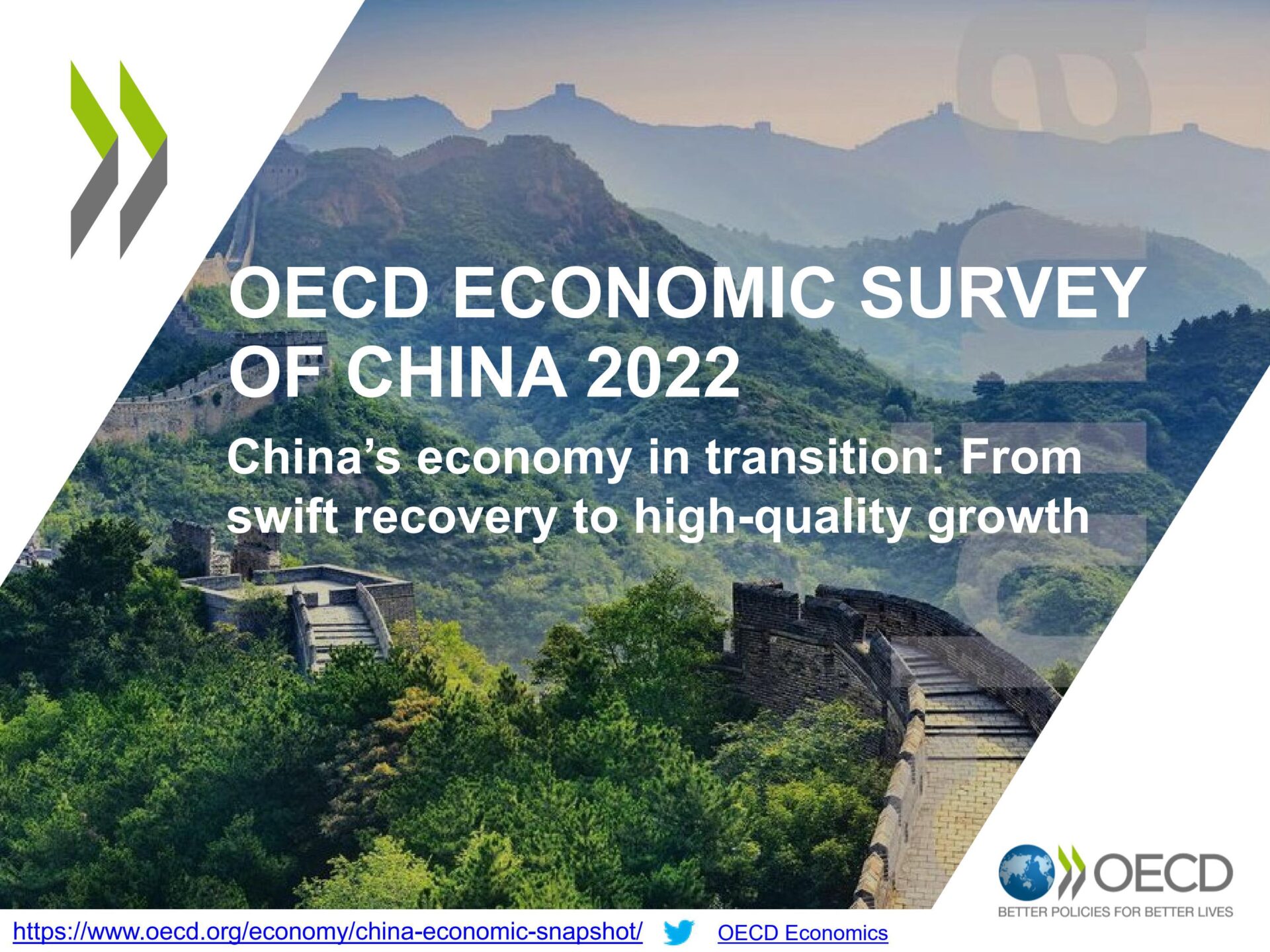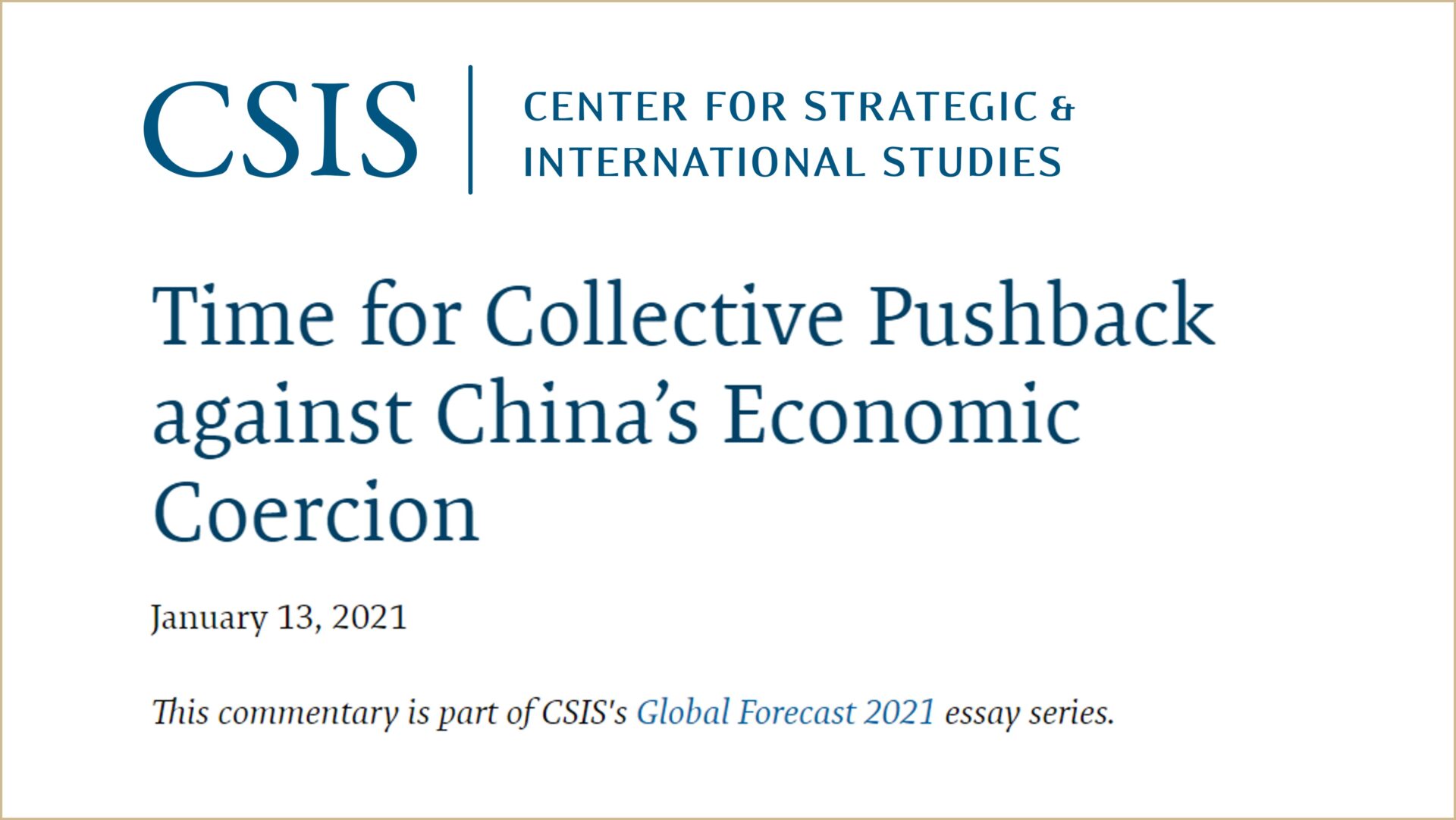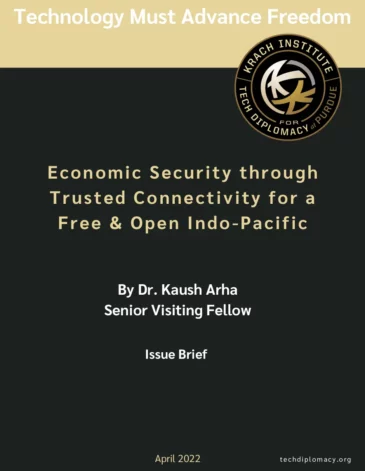Economic Security Through Trusted Connectivity for a Free and Open Indo-Pacific
Krach Institute for Tech Diplomacy at Purdue
The Ukraine crisis is a wake-up call for liberal democracies to strengthen their individual and collective economic security in an integrated global economy. The European nations find themselves in the untenable position of vehemently opposing Russia’s unlawful invasion of Ukraine while continuing to import Russian energy and funding its war machine. Going forward, economic security will necessitate that economic relations better integrate broader national interests. German Vice-Chancellor Robert Habeck observed that “We knew, or we could have known, that it was not only stupid to place all our security policy cards on just one country, but that it also wasn’t a smart idea to put them on that particular country. We have to acknowledge that we acted wrongly in the past.” In a world economy defined by global supply chains, economic security will demand an increasingly high premium on trusted — and not merely profitable — trading relations with reliable partners. The Trusted Connectivity framework and its dual assurances of best business practices and legal-political commitment to a rules-based global order can inform the process of shoring up the economic security of free world nations.
Related Posts

article
OECD Economic Survey: China
China’s economy has strongly rebounded from the deep dive following the COVID-19 outbreak and has returned to its gradually slowing path. The rebalancing from investment to consumption, from manufacturing to services, and from rural to urban migration have all been set back by the pandemic, but need to restart to make growth sustainable and inclusive.

article
Time for Collective Pushback against China’s Economic Coercion
Coping with the multitude of challenges that China poses will require building coalitions. President-elect Joe Biden knows this.
